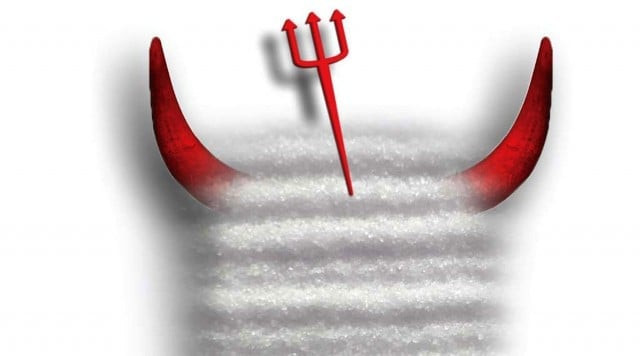The brewing sugar crisis
Pakistan is the world’s fifth largest sugarcane producer and Asia’s third largest sugar consumer.

The country has about 72 sugar mills, of which at least 26 are owned by powerful politicians including so-called top-class national leaders. A large number of parliamentarians or their relatives or partners are owners of sugar mills and exercise influence in federal as well as provincial governments.
The sugar price, in general, is controlled and determined by powerful lobbies of traders, commercial importers and mill owners who store the commodity when it is cheap and sell at high prices, particularly in Ramazan. Mill owners play a key role in engineering supply of sugar in the market and pocket billions of rupees from its sale at higher prices.
When the price of sugar is low in the international market, the mill owners pressurise the government into imposing duties to discourage its import, but when the price is high in the international market, they increase domestic prices on the pretext of countering smuggling across the border. The government has apparently lost its control over mill owners and commercial traders.
Sugar producers, on their part, say it is the demand and supply that determines the price of the commodity and they are not responsible for the skyrocketing prices. Instead, the mill owners blame the dealers for hoarding a huge quantity in a bid to make windfall gains.
How to overcome the problem
It is the duty of the government to adopt a strategy to overcome the upcoming sugar crisis. Provincial and federal governments should devise a plan to ensure supply of sugar all over the country at cheap and uniform rates. Though it is an uphill task to take any decision, a serious and determined government can take action against those responsible for the problem. Unfortunately, effective measures have not been taken by the government to tackle the issue. Instead the ground reality is that the government itself is part of the sugar mafia.
The price of one kg of sugar was Rs25 in the first half of 2009, but now it costs Rs60-65 per kg. Why? The reason is that the government and the opposition are part of the sugar mafia. Even the Punjab government is hesitant to take any action against these giants, which means that people will continue to suffer while mill owners, traders and importers will prosper.
Mill owners, in general, purchase sugarcane from small farmers at a low price. During the crushing season, about 100,000 workers are hired on seasonal basis at nominal wages.
According to general calculation, ex-factory price of sugar, including profit of mill owners, should not exceed Rs36 per kg.
Opportunity lost
The international sugar market, which crashed in April this year, had provided an opportunity to the government to import sugar and bring down the prices. But it did not. The private sector has already imported 170,000 tons of sugar at low rates during April to June. Now the international price has gone up and it is no use crying over spilt milk.
Now consumers will not benefit from lower international prices due to the delay in the import of sugar by the government. The sugar cartel has become active again and has approached high-ups to get regulatory duty imposed on imports.
According to a report prepared by the National Accountability Bureau in February 2006, the sugar industry was predominantly run by politicians, who hoarded thousands of tons, triggering a crisis. It is generally believed that NAB was forced to wind up the inquiry under the pressure of politicians. Ironically, some mill owners are also said to be involved in smuggling of sugar through the Afghan border and that too happens under the umbrella of corrupt officials. If the commodity is supplied legally, there will be no shortage. Though the government thrusts strict rules upon ordinary people, it does not adopt a strict policy to check smuggling by hoarders.
Lack of technology
Unfortunately, because of a lack of latest technology, sometimes production of sugar is not enough to meet domestic needs. The Pakistan Agricultural Research Council should try to develop new varieties of sugarcane to increase production of sugar and tackle the problem. Farmers should use high quality seeds and effective fertilisers, pesticides and insecticides to minimise the threat of diseases. The government should keep a close watch on demand and supply and make policies strictly on merit. Besides, people should be made aware of harmful effects of unnecessary use of white sugar. The government should be a representative of poverty-stricken people and not of mill owners.
Published in The Express Tribune, July 19th, 2010.



















COMMENTS
Comments are moderated and generally will be posted if they are on-topic and not abusive.
For more information, please see our Comments FAQ